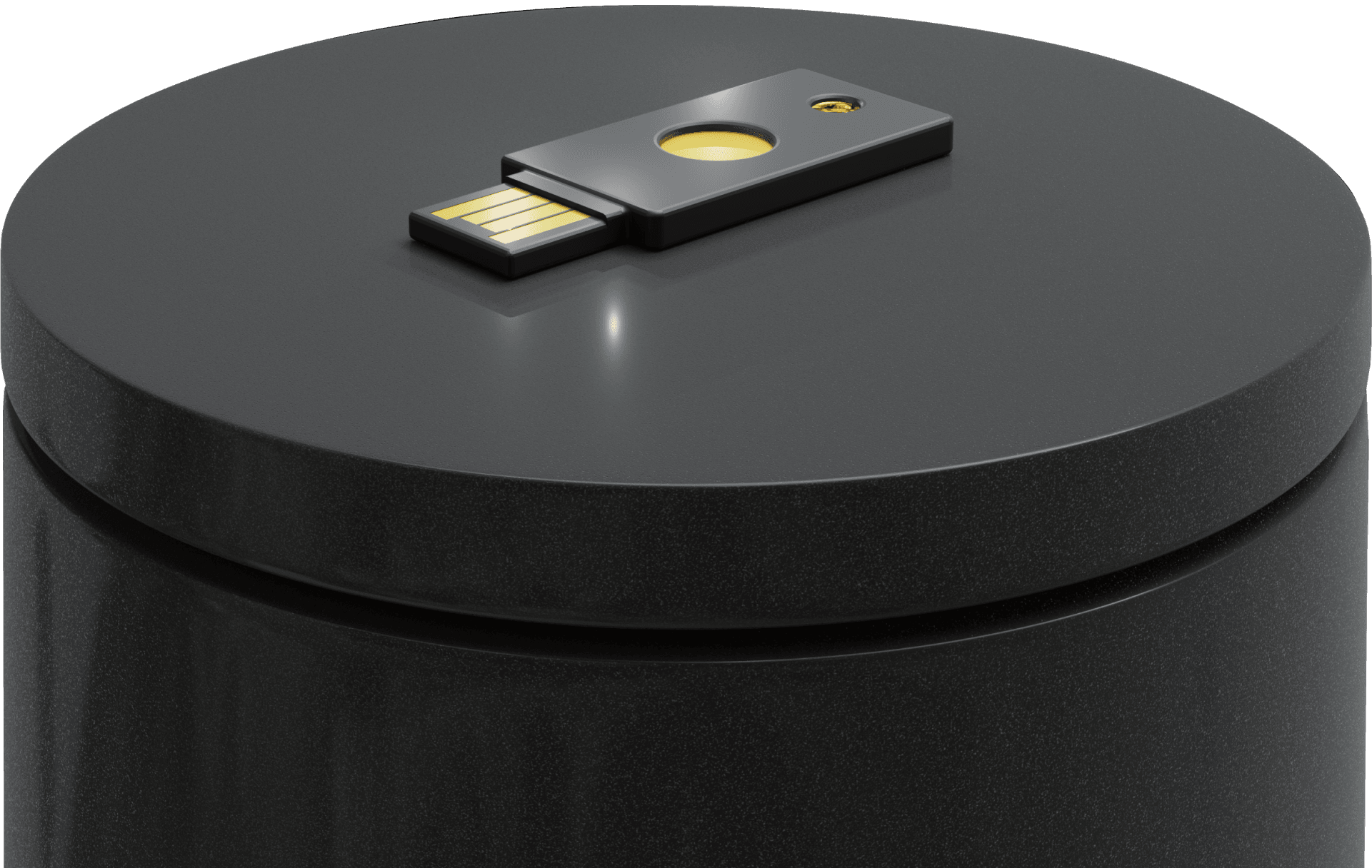0pass helps you protect any corporate resource with YubiKeys. We make every aspect easy to handle—from credential management to user enrollment. We help your team roll out passwordless authentication for the enterprise.
Talk With Us
Built by a team of security engineers from

Enrolling employees
Want to get thousands of employees using YubiKeys? Let users enroll keys themselves, or IT can enroll on their behalf. The 0pass App enrolls PIV and FIDO2 credentials to YubiKeys in a flow that is simple enough for any user.
Credential management
Bring your certificate authority, like Microsoft AD CS, or use our built-in CA. 0pass issues certificates directly to YubiKeys. When a device is lost, admins can easily revoke the certificate and publish it to the certificate revocation list.
Windows, Mac, Linux, and SSO logins
Use YubiKeys for any access at your company: Windows, Mac, Linux workstations, SSH servers, and SSO providers. We give you tailored, one-time configurations for Active Directory, MDMs, and other infrastructure.
Configuration at scale
We help you enforce the right settings and configurations, such as allowing YubiKeys to authenticate with or without a PIN or Touch. With 0pass you have a central place to manage your keys and keep track of them.
Get the powerful features you need
0pass App
A desktop app with an easy enrollment flow, while orchestrating all the tedious tasks and configurations in the background. Users can enroll via a kiosk or via their own computers, and admins can enroll on behalf of users.
Management Portal
A web app for managing users, their enrolled YubiKeys, enrollment settings, and integrations. Also serves as inventory management, helping admins track and revoke the credentials on YubiKeys.
Certificate Management System
0pass ships a built-in CA or integrates with yours. The certificate management system takes care of the certificate lifecycle: signing certificate requests, handling revocation, and publicizing CRLs.
Try it for free
Ready to get started?
Request access to a demo with a free 30-day trial.
Deploy passwordless MFA with YubiKeys for any operating system
Windows
Users log in to Windows computers and servers with their YubiKey as a smart card. We provide you with all the tools for passwordless Windows logins with AD and Azure AD.
Mac
Users log in to Mac computers with their YubiKey as a smart card. We provide the necessary configs and credential management for passwordless Mac logins.

Linux
Users log in to Linux machines with their YubiKey as a smart card. We provide configs to support all Linux flavors and credential management for passwordless Linux logins.

